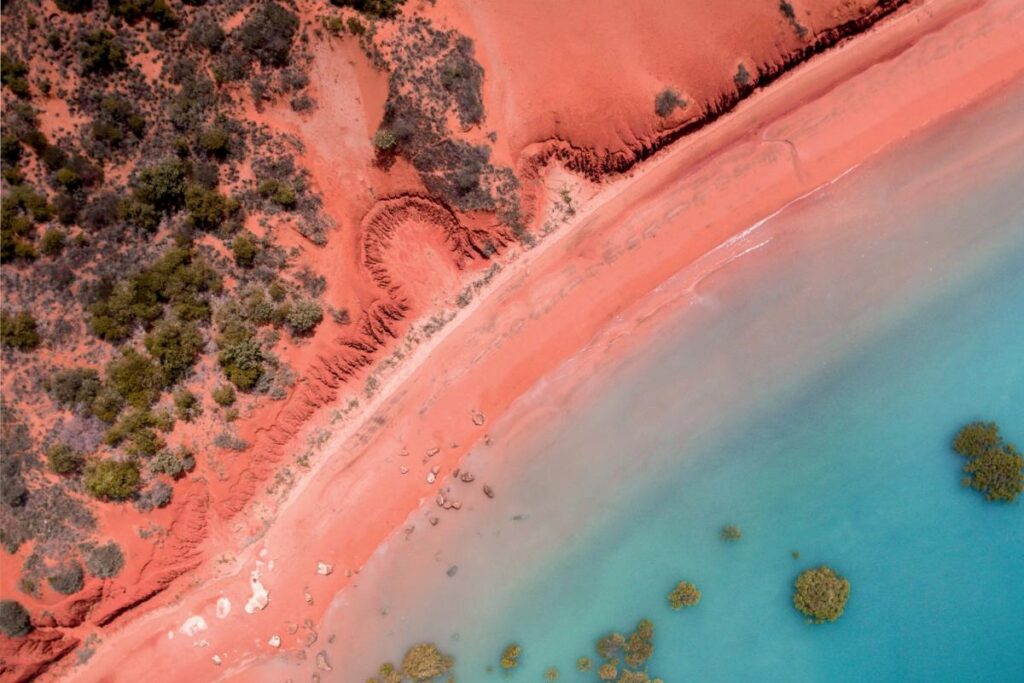In the serene and ecologically rich environment of Roebuck Bay in Western Australia, a unique relationship exists between land, water, and the abundant wildlife found within this Ramsar wetland. As the tide recedes, it exposes expansive mudflats characterized by tangled mangrove roots and an array of crab holes. This stunning landscape serves as a natural supermarket for local guide Bart Pigram, a member of the Yawuru people, who have stewarded this land and its resources for over 30,000 years. The area buzzes with life as the tide lowers, revealing hidden treasures in the mud, such as mud crabs, octopuses, and a variety of shorebirds that flock here in the warmer months.
Bart’s guided tours in this coastal paradise offer visitors not just a glimpse into the rich biodiversity, but also an intimate understanding of Yawuru culture and traditional practices surrounding hunting and foraging. His deep connection to the land is palpable, and his stories enrich the experience of traversing the intertidal flats. While demonstrating traditional techniques, Bart also reflects on the changing dynamics of modern fishing practices compared to those of his ancestors, illustrating the balance between tradition and convenience in contemporary life.
On this particular outing, Bart encounters a little octopus, which provides a light-hearted moment in the excursion. The small creature instinctively squirts water as a defense mechanism against unexpected proximities, showcasing its own adaptation techniques within a habitat filled with predators and foragers. This moment, though playful, underlines the delicate interdependence of the species residing within these mudflats and the need for awareness about their behaviors and habitats.
The walk with Bart, while illuminating and informative, is merely a brief encounter with the depth of knowledge he possesses. As he leads the group through varying terrains—from crowded mangroves to wide muddy expanses—Bart immerses his guests in lessons of survival and respect for the land. He demonstrates traditional foraging and hunting methods, including his skillful retrieval of a mud crab from the mud, a task tied to the ancient practices of his ancestors and cherished by the community today. This blend of respect for tradition alongside modern engagement offers valuable insights into sustainable living.
The culmination of the tour is an engaging cook-up, reinforcing the connection between gathering and sharing food. Bart forages for materials to create a fire, and soon, the sweet aroma of cooking crab fills the air, adding a sensory layer to the narrative of life in Roebuck Bay. As participants share the meal, they do so not only as tourists but as partakers in an ancient tradition, deepening their appreciation for the land and its rich cultural heritage.
Ultimately, Bart’s stories and interactions bring to life the broader tapestry of life within Roebuck Bay. Through guided experiences that blend education, cultural history, and practical knowledge, visitors depart with a greater understanding of the Yawuru people’s enduring connection to their land and a recognition of the importance of preserving such unique ecosystems. Each visit becomes a reminder of the intricate relationships that exist within natural environments and the role humans can play in nurturing and protecting these vital landscapes for future generations.

